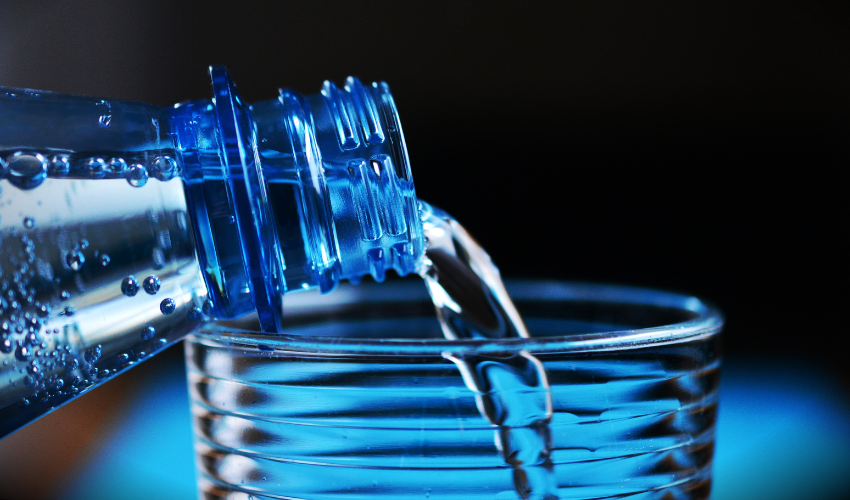Water is essential for human survival, and our bodies need it to function correctly. The human body is made up of approximately 60% water, which is why staying hydrated is crucial. However, when we don’t drink enough water, we become dehydrated, which can have severe consequences for our body systems. In this article, we’ll explore the different ways that dehydration affects our body systems and why it’s essential to drink enough water.
How Dehydration Affects the Body Systems:
- The Cardiovascular System:
Dehydration can cause significant strain on the cardiovascular system. When we’re dehydrated, our blood becomes thicker and more difficult to pump, which can lead to an increased heart rate and even heart palpitations. Dehydration can also lead to a drop in blood pressure, which can cause dizziness and fainting.
- The Digestive System:
Dehydration can also affect the digestive system. When we don’t drink enough water, our body tries to conserve it, which can lead to constipation. Dehydration can also cause stomach ulcers, acid reflux, and other digestive problems.
- The Urinary System:
The urinary system is responsible for filtering waste from our bodies, and it requires water to function correctly. When we’re dehydrated, our urine becomes concentrated, which can lead to urinary tract infections, kidney stones, and other urinary problems.
- The Musculoskeletal System:
Water is essential for keeping our joints lubricated and our muscles hydrated. When we’re dehydrated, our muscles and joints can become stiff and sore, which can lead to cramps and even injury.
- The Nervous System:
Dehydration can also affect the nervous system. When we’re dehydrated, our brain can’t function correctly, which can lead to confusion, irritability, and even seizures. Dehydration can also affect our sleep patterns and make it difficult to concentrate.
- Skin
Dehydration can cause the skin to become dry, itchy, and more prone to wrinkles and premature aging. Without enough water, the skin can lose its elasticity and radiance, leading to a dull and tired complexion. Drinking enough water can help keep the skin moisturized, reduce inflammation, and promote a healthy and youthful appearance.
- The Immune System:
The immune system relies on water to function correctly. When we’re dehydrated, the immune system can become weakened, leaving us more susceptible to illness and infection. Drinking enough water can help strengthen the immune system, making it easier to fight off harmful bacteria and viruses.
- The Respiratory System:
When we’re dehydrated, the respiratory system can become compromised, leading to dry nasal passages, throat, and lungs. This can make it difficult to breathe and can aggravate asthma and allergies. Drinking enough water can help keep the respiratory system moist and healthy, reducing the risk of respiratory problems.
The Importance of Hydration for Athletes:

Athletes require more water than the average person due to the additional stress placed on the body during exercise. Dehydration affects the body systems and can cause muscle cramps, fatigue, and decreased endurance, which can significantly impact athletic performance. Staying hydrated before, during, and after exercise is essential for peak athletic performance.
Dehydration in Children:
Children are particularly susceptible to dehydration, as their bodies have a higher percentage of water than adults. Dehydration in children can lead to fever, nausea, vomiting, and even seizures. It’s essential to encourage children to drink plenty of water throughout the day and to keep an eye on their fluid intake during hot weather and physical activity.
FAQs:
How much water should I drink every day?
The amount of water you need to drink each day depends on several factors, including your age, weight, activity level, and climate. However, a general guideline is to drink at least 8 cups of water per day.
Can I drink other liquids instead of water?
While other liquids like juice, tea, and coffee can contribute to your daily fluid intake, they aren’t as effective as water when it comes to keeping your body hydrated. Water is the best choice for staying hydrated.
How can I tell if I’m dehydrated?
Some common signs of dehydration include feeling thirsty, having dark urine, feeling tired or dizzy, and having a dry mouth or throat.
Can dehydration be dangerous?
Yes, dehydration can be dangerous, especially in severe cases. It can lead to heat exhaustion, heatstroke, and even death. You must drink enough of water especially if you have food poisoning or flu.
How can I prevent dehydration?
The best way to prevent dehydration is to drink enough water every day. You should also avoid excessive alcohol and caffeine consumption and make sure to stay hydrated when exercising or in hot weather.

Conclusion:
Dehydration can have significant consequences for our body systems, but it’s a preventable problem. By making sure to drink enough water every day, we can keep our bodies functioning at their best. So, the next time you feel thirsty, remember the importance of staying hydrated for your overall health and wellbeing. Remember, water is the essential source of life and should be treated with the respect it deserves. Stay hydrated and stay healthy!






















